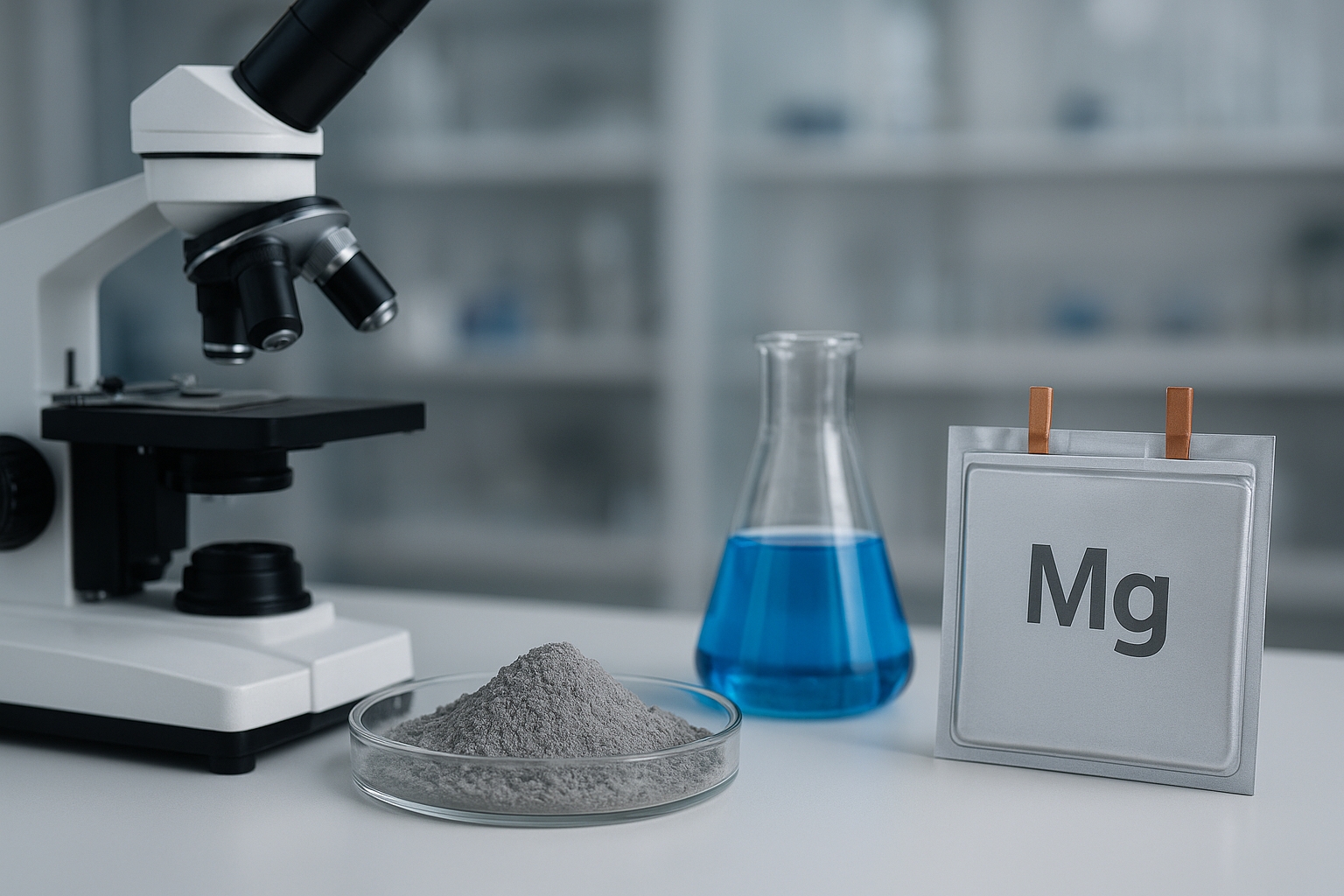Magnesium batteries as a key technology for a sustainable energy future
The EU-funded HighMag research project, led by the AIT Austrian Institute of Technology, is launching a Europe-wide initiative to develop a new generation of magnesium-based batteries. The aim is to create powerful, sustainable, and cost-effective alternatives to lithium-ion batteries for mobility and energy storage applications.
From lithium to magnesium: Why a technology change is necessary
The electrification of transportation and energy systems is advancing at a rapid pace. The global ramp-up of renewable energies is increasing the demand for powerful storage solutions. Although lithium-ion batteries (LIBs) are state of the art today, their limitations are obvious:
- limited availability of raw materials such as lithium, cobalt, and nickel,
- cost increases and geopolitical dependencies,
- safety risks such as thermal runaway,
- inadequate recycling processes,
- and high environmental and social impacts from raw material extraction.
These factors highlight the strategic need for alternatives. Among the “post-lithium” technologies, magnesium batteries are increasingly coming into focus: Magnesium is about 1,000 times more abundant in the Earth's crust than lithium, safer to handle, inexpensive, and has a high theoretical storage capacity potential.
HighMag: Generation 5 magnesium-based batteries
The HighMag project (“High-energy, low-cost and scalable generation 5 magnesium-based batteries for mobility applications and beyond”) is developing two battery architectures in parallel: magnesium-sulfur systems with conversion cathodes and magnesium-metal systems with insertion cathodes. To this end, a novel coated Mg anode material in powder form is being developed that is suitable for both systems.
The project pursues a systemic approach that encompasses the entire value chain:
- Material level: Development and synthesis of high-performance cathodes, stable electrolytes, and coated anodes.
- Cell level: Optimization of separators, electrode coatings, and cell architecture.
- System level: Pilot-scale validation with pouch cells and evaluation of safety, sustainability, and recyclability.
HighMag thus addresses the central challenge of magnesium batteries: their low electrochemical activity and stability in rechargeable systems. Through the use of advanced characterization methods and iterative feedback loops between material development, electrolyte design, and cell testing, the technology readiness level is to be raised from TRL 2 to TRL 4.
Contribution of AIT: From material development to pilot cells
As coordinator, the AIT Austrian Institute of Technology is responsible not only for overall management but also for key tasks in direct research and development. The experts at the Battery Technologies Competence Unit are working on:
- sustainable synthesis routes for manganese-based insertion cathodes,
- gas analysis investigations into the stability and safety of magnesium systems,
- the scaling of electrode coatings from laboratory to pilot scale,
- the production of pouch cell prototypes for technological validation,
- and research into innovative recycling strategies to ensure recyclability is considered from the outset.
Project manager Dr. Yuri Surace, Senior Scientist at AIT, emphasizes the importance of this: “Magnesium is at the forefront of the next generation of batteries. With HighMag, we are developing sustainable, powerful, and cost-effective alternatives to lithium-ion batteries. Our goal is to advance the technology from the laboratory to pilot production—an important step toward safe and resource-efficient energy storage solutions that will have a lasting impact on mobility and the energy transition.”
Sustainability and industrial scalability
A central guiding principle of HighMag is Safe and Sustainable by Design (SSbD). Environmental and safety aspects are integrated from material development to recycling. At the same time, the project attaches great importance to industrial feasibility: the technologies are being developed to be compatible with existing production lines for lithium-ion batteries. HighMag is thus creating the conditions for rapid scaling and strategic strengthening of the European battery industry.
This project receives funding from the European Union's Horizon Europe research and innovation programme under grant agreement no. 101202882.





